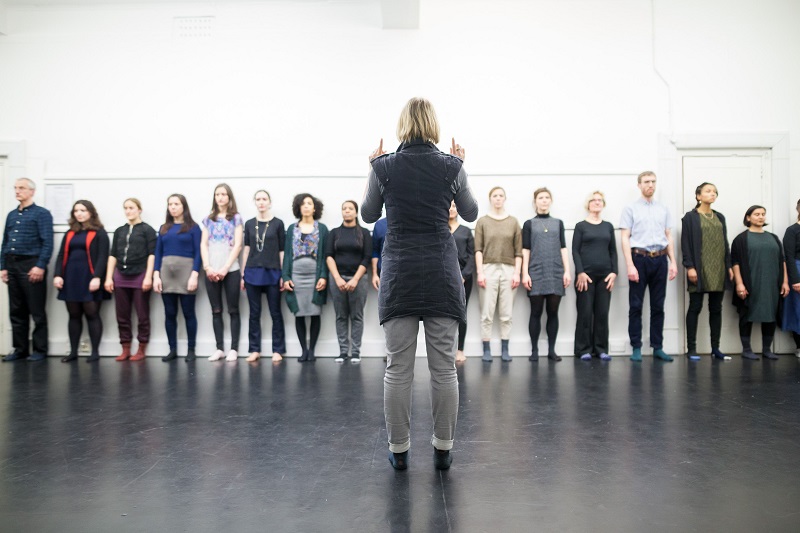Q What types of art-based techniques are being used in healthcare currently
A There is a long-established, strong relationship between arts and healthcare.
NHS organisations increasingly incorporate a range of arts interventions across services, recognising their powerful and positive influence on the mental and physical health and wellbeing of both staff and patients.
Healthcare staff face growing pressures, and many are suffering with exhaustion and mental health problems such as stress and trauma as a result of dealing with COVID-19
These range from dance classes for people with Parkinson’s to help prevent falls, drama workshops helping people recovering from addiction, singing classes for people with COPD or for mums with post-natal depression, art classes for people with dementia, or creative training programmes for healthcare professionals themselves to help them manage stress, communicate effectively, and look after themselves.
Q How has COVID-19 accelerated collaboration between the arts and healthcare?
A The current pandemic presents us with an opportunity to build on the brilliant work already being done across arts and health sectors – as the need to engage isolated people in communal activity, to nurture mental health, and to support healthcare professionals becomes ever more apparent.
And, as we begin to re-imagine models of health and social care, culture has a vital role to play.
There is growing interest in the ways that cultural organisations can work with primary care networks to support community health and wellbeing and the social prescribing movement is gaining momentum.
Visual arts, drama, music, and dance sessions can help people to stay well and connected, to manage their health conditions, and can take pressure of GP surgeries.
Medical and nursing schools increasingly see the benefit of embedding an arts or humanities programme within the curriculum – giving students new perspectives and skills to meet the uncertainties of the current environment.
NHS organisations increasingly incorporate a range of arts interventions across services, recognising their powerful and positive influence on the mental and physical health and wellbeing of both staff and patients
Q How do you apply arts-based approaches to working with staff?
A Performing Medicine’s work particularly focuses on arts-based approaches to professional development and staff wellbeing.
Even pre pandemic, work-related stress and anxiety accounted for over 30% of sickness absence in the NHS, costing £300m-400m a year, according to NHS Employers (2019); absence rates which are higher than the rest of the economy.
Healthcare staff face growing pressures, and many are suffering with exhaustion and mental health problems such as stress and trauma as a result of dealing with COVID-19.
During the pandemic we have been providing self-care sessions to staff at NHS trusts and to students in medical schools.
Sessions help staff to revive and recover before, during, and after shifts, to communicate effectively with colleagues in stressful conditions, and to navigate the realities and challenges of online meetings and consultations.
This might involve breathing techniques to manage stress during the day, voice exercises to help communicate while wearing masks, movement sequences to keep well during ever-increasing amounts of virtual meetings – and sessions also provide a much-needed framework encouraging people to discuss what is going on for them, stay connected and share tips and solutions.
Cultural and health sectors must seize this opportunity to integrate arts and creativity into our health and social care services, creating better outcomes for both staff, patients and communities
Q What unique developments have you seen emerge recently?
A A main area of development this year has been to respond to the considerable challenges of wearing Personal Protective Equipment (PPE).
We were asked by colleagues at University College London Hospitals NHS Foundation Trust (UCLH) to create a resource for staff.
We interviewed professional actors and performers used to wearing obstructive clothing, including from the National Theatre production of War Horse, and shared their tips with frontline staff.
Actors are used to wearing restrictive costumes, masks, puppets, animatronics and prosthetics and are, therefore, well placed to address some of the issues around wearing PPE for extended periods of time.
We also developed a free digital resource for healthcare workers, entitled Coping with PPE.
From advice on orientation and spatial awareness, and non-verbal communication, to breathing techniques and body-scans; Coping with PPE is an effective resource for staff across the healthcare sector.
And this work will be further developed this year through a research grant from the Arts and Humanities Research Council which particularly examines the non-verbal communication of healthcare professionals during the pandemic.

Performing Medicine has been supporting healthcare staff through resources on PPE, advice on non-verbal communication, and arts-based sessions on equality, diversity and inclusion
Q What further developments do you envisage for 2021?
A COVID-19 has starkly revealed health inequalities in our population and it has also shone a light on structural racism in our health and education systems.
Healthcare professionals and students across the country are demanding that this is both acknowledged and addressed.
Arts approaches are good at fostering critical thinking, dialogue, and exchange – at addressing challenging subject matter - and as such have an important role to play in creating a fairer, more equal, more accountable health service.
We are currently developing sessions focusing on equality, diversity and inclusion with colleagues at Barts & The London Medical School.
And we will also be rolling out a workforce development programme for GPs, link workers and arts organisations to help build community social prescribing networks nationally.
I believe that cultural and health sectors must seize this opportunity to integrate arts and creativity into our health and social care services, creating better outcomes for both staff, patients and communities.




